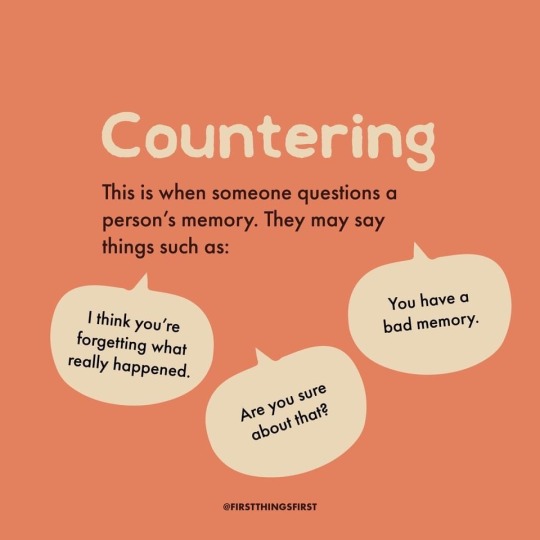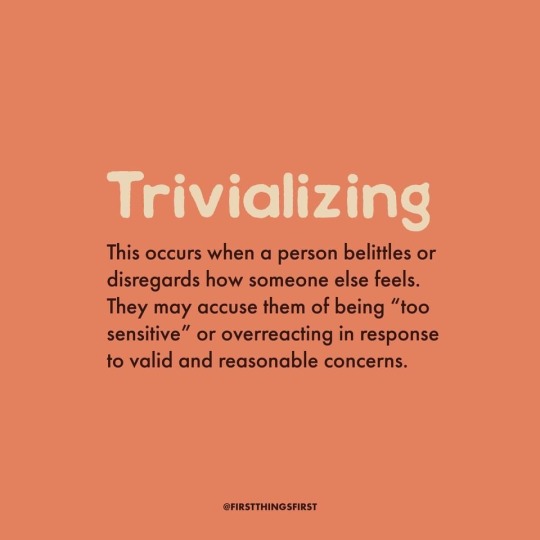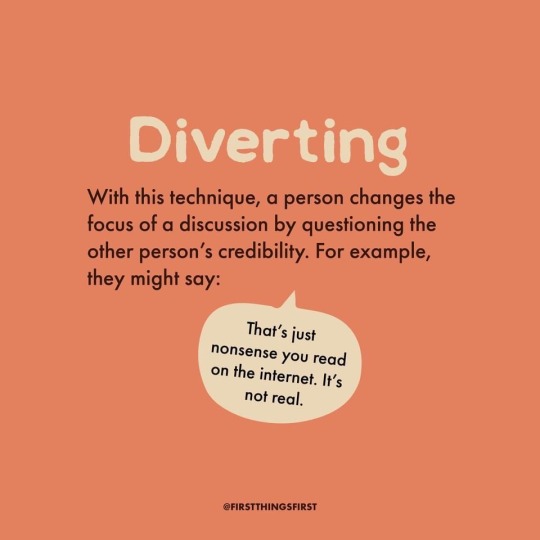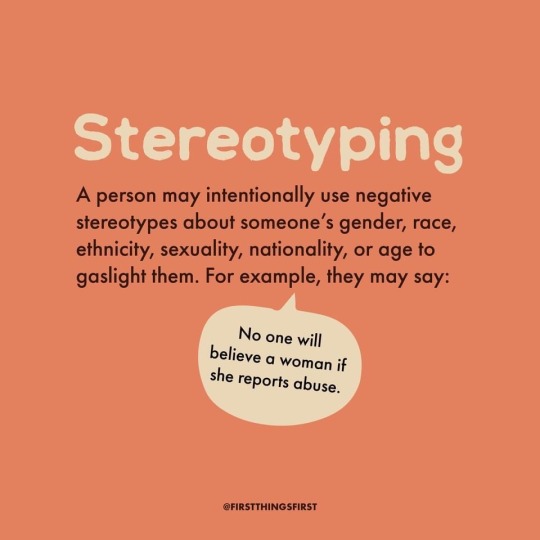#Stereotyping
Explore tagged Tumblr posts
Text
Okay, something that’s been pissing me off recently is the whole “Dick Grayson is a whore” thing. He absolutely is not. He has explicitly said so in the past (see the panels at the bottom of the post), and what pisses me off even more is people dismissing criticism of this as just “fanon mischaracterization.”
Him being portrayed as a whore is becoming canon now. I could be wrong on the timing, but it definitely seems more prevalent since he was canonized as Romani. And, conveniently, that just so happens to align with a massive Romani stereotype. Maybe it’s a coincidence, but it’s annoying as hell, whether it’s fanon or canon.
It’s the same way people reduce Damian to some rabid, violent creature that bites—another stereotype, this time about Arab people. It’s been pissing me off lately.
Tim and Bruce are the family whores, not Dick. In canon, he’s attractive and charismatic, but that doesn’t mean he’s a slut.
Can we please, for the love of whatever the hell you believe in, stop copy-pasting racial stereotypes onto characters? I don’t care if it’s unintentional. Stop it.




#romani dick grayson#stereotyping#tumblr discourse#dc universe#dc#this is really pissing me off#batfam#dc comics#dick grayson#richard grayson#stop stop stop#stereotypes#comics#tim drake#damian wayne#bruce wayne#mischaracterization#batfamily
497 notes
·
View notes
Text
Reminder not to stereotype kintypes.
Just because one is a fox does not mean they're as happy and playful as one.
Just because one is a rabbit does not mean they're a cute, cuddly, soft bunny.
Just because one is a bird does not mean they're sad to be earth-bound.
Just because one is a wolf does not mean they have "two sides/personalities" while shifting.
Just because one is a cat does not mean they are faking alterhumanity, or in their "Warrior Cat phase"
Just because one is a nonhuman does not mean that we do quads.
Just because one is a nonhuman does not mean we have gear.
Just because one is a nonhuman does not mean we are lean, strong, and Caucasian.
Just because one is a nonhuman does not mean we express our alterhumanity in eccentric ways.
Every nonhuman is valid as fuck. From the smallest mouse, to the largest whale, everything in between, you are valid.
#alterhuman#therianthropy#therian#nonhuman#alterhumanity#nonhumanity#otherkin#theriotypes#hearttypes#copinglink#kintypes#stereotyping#we as a community are flawed#kin#synpath#love yourself#otherhearted#i don't care if you wear lululemon and eat at trendy restaurants#you're still valid as an alterhuman.
1K notes
·
View notes
Text
It seems to me that some people REALLY want the deadly sins in the Hellaverse to be overly negative stereotypes of whatever sins they represent.
First they complained about Ozzie having standards and boundaries for consent because he's the embodiment of lust. Even though lust shouldn't have to be forced and consent is the bare minimum, as Ozzie said himself. You can be horny without being a fucking rapist.
Then they hated how Lucifer is a misunderstood goofy good guy not only because he embodies pride, but because he's Lucifer himself. Nevermind the fact that the Hellaverse's versions of Lucifer and Satan are two completely seperate characters, and that's been established way before Satan was even introduced in Mastermind.
Now they're bitching about Bee being disgusted with Mammon's table manners. (Yes, THAT'S the part she was disgusted by, not the fact that he was eating at all.) Even in her debut episode they were asking why she isn't obese. (It's because her torso is basically a lava lamp which gives her a high metabolism.) And gluttony itself isn't just about eating. It also involves over-indulgence, and Bee being a hard partying alcoholic who encourages people to get drunk (although not completely wasted either since she was concered about Blitzø) and eat junk food, which is exactly what her introduction song Cotton Candy is all about.
With the exception of Mammon and Satan, all the deadly sins we've seen so far are supposed to represent the POSITIVE side of their sins. For as much as Viv antis accuse her of stereotyping people, they sure do love indulging in stereotypes themselves.
#helluva boss#hazbin hotel#hellaverse#helluvaverse#seven deadly sins#helluva asmodeus#helluva ozzie#lucifer morningstar#helluva beelzebub#helluva mammon#helluva satan#anti nonsense#stereotyping
216 notes
·
View notes
Text
Examples of Gaslighting







First Things First
#mental health#gaslighting#examples of gaslighting#countering#withholding#trivializing#denial#diverting#stereotyping#take care#relationships#friendships#feel free to share/reblog#First Things First (Facebook)
571 notes
·
View notes
Text
Dev talking about his movie Monkey Man (7 April 2024)
262 notes
·
View notes
Text
I'm not a fan of how Arcane handles adopted characters.
The show is excellent, I've been enjoying it so far, however I very much believe that Powder and Vi's adoption by Vander is an underdeveloped plotpoint. The amount of fans calling the sisters, vander and the other kids a 'found family' is evidence enough in my opinion. I have nothing against the found family trope, I really love Dungeon Meshi for example, but Arcane is NOT a found family. They are an adopted family, and there is a big difference between these two things. To put it simply, an adopted family is a different kind of family, whereas a found family is a friendship group with a greater level of support and care. It's frankly insulting to adoptees to conflate the two, because many of us have relinquishment traumas among others and grow up as black sheeps in the family. I don't like the comparison because in my opinion it's like saying my family is the same as you and your bff's relationship. You wouldn't say that to a kept person.
But I digress, I'm here to talk about my dislike of how Arcane handles adoption. I consider it very tropey - orphanhood and adoption as a plot point is used to give the main two characters a 'tragic backstory', and yet the show doesn't even have the dignity to give it some backbone. I don't like little orphan annie, yet she's still an adopted character. With Vi and Powder however, you could remove adoption from the story of Arcane and it would be exactly the same story in my opinion. This is dangerous in storytelling, because it creates alleyways for stereotypes like the 'psychopath adoptee' to come into play, which has haunted media for years. Jinx killing Vander is just a played out trope in my opinion, and it feeds into the very real fears that affect the adoptee community in real life. People think we're broken, that we'll hurt and harm our adoptive family, that we're criminals or bad blood. Putting this trope into your story without the slightest bit of effort to make it seem otherwise is gross. And if you don't believe me, look at the trailer for "adopted" - a film that's coming out this year. It'll show you exactly what I mean when I say that kept people assign adoptees traits such as violent, manipulative and alien with prejudice. https://youtu.be/CILgaro5s5c?si=7fMqXV4cDzA9t43_
Along with this, I dislike how Jinx is handled. I've only seen season 1 so I don't know if this changes, but from what I gather, Silco is meant to be her new father. Her replacement for Vander. And considering how her birth family were fully involved in Silco's/vander's uprising (as shown in the prologue), I can't see Silco as anything other than a stand in for birth family. I can't see this as anything other than an estranged adoptee being led astray by birth family and turned into someone evil, someone they were meant to be because their blood dictated it. This trope is vitriolic, I can't think of any other word to describe it. I see Vi as the good golden child who stands by her adoptive parents and Jinx as the kid who wants to reunite with her birth family. I believe this show was careless with how they handled adoption - this is what comes from non adoptees/kept folk writing adopted characters. Adoptees aren't morally wrong for wanting to know their birth family, we aren't broken or sick. And yet somehow, even when adoption is used as a flippant plot point, the characters manage to fall into the same stereotypes over and over and over again.
I also hate that Vi and Powder have the same birth family. The other kids are treated as a 'boo hoo, more trauma for Powder' plot point, but ultimately discarded because they're not birth family. I know Jinx makes those dolls and hears voices, but you CANNOT tell me that if Vi had died instead of Vander and the kids, that Powder wouldn't have been way worse off. That's how they wrote the characters. To care about each other above all else. This is bioessentialism and that is a messy and more often than not dangerous view to be pushing. If they had been two adopted siblings, or perhaps Vi was Vanders birth child and Powder was adopted, I wouldn't be as mad because at least then it would seem like the writers actually put some effort into portraying adopted families as equal to birth families. As the show is though? Adopted families are treated as inferior.
So yeah. I don't like how Arcane handles adoption. It drags me out of the viewing experience, and makes the entire show seem unrealistic and cliche. Feel free to ask questions but I'm gonna be honest, I'm probably not gonna bother with season two. Which is a shame, I love the gay magic guys.
#arcane#arcane show#arcane analysis#analysis#arcane tv show#arcane theory#jinx arcane#jinx and vi#vi arcane#vi and jinx#vander#arcane jinx#league of legends#arcane league of legends#jinx league of legends#adoptee#actually adopted#adoption#tropes#media analysis#shoddy trope use#stereotyping#adoptee microagressions#ask me anything#arcane netflix#jinx#vi and powder#powder arcane#powder#vent post
43 notes
·
View notes
Text
Some things I want to talk about more but don't because nobody's ready to hear it:
-How much I hate AI
-Why I think the 40 hour workweek is an outdated concept.
-Why being a sub elitist (meaning people who think anime should only be subbed and think that all dubbed anime sucks) is stupid and aggravating.
-How some people who complain about gender stereotypes often stereotype other people based on gender more than the people they complain about do.
-How creepy it is that we've become conditioned to accept rampant advertising in every part of our lives as normal.
-The way the government lies to everyone about how dangerous covid is and encourages people to minimize/downplay/ignore the dangers of covid.
#personal#the coyote talks#life#people#stuff#things#misc.#miscellaneous#society#current events#politics#AI#stereotypes#stereotyping#work#working#covid#covid 19#pandemic#pandemics#ads#advertisements#advertising#etc.
25 notes
·
View notes
Text
“you have to like garlic bread or it doesn’t count”
-my entire camp friend group
34 notes
·
View notes
Text
oh my god are will still rewarding characters in the story for referring to the “killer” as a “psycho” god can we please stop beating this dead horse
psychosis does not automatically make you violent, most people with psychosis aren’t violent, and when they are it’s not literally just because Psychosis.
and even if it refers to psychopathy instead of psychosis, which are not the same thing, and this term’s vagueness makes it do absolutely nothing to dispell any confusion between the two terms…
psychopathy is not “being murderous and that’s it”. the negative aspects of it are not just “being murderous”. so even if it’s NOT stereotyping psychosis, it’s still flanderizing something complicated that’s also related to a complicated mental disorder (aspd).
can we potray mental illness-flanderizing language like this as a flaw more please
oh and btw this is a stuido making money off of this
#ableism#sanism#saneism#vent#psychosis#aspd#neither condition (psychosis or aspd) automatically make you kill people.#murder tw#murder cw#stereotyping#all caps
10 notes
·
View notes
Text
whenever I say I worked at a care home people always assume I mean an OLD PEOPLE'S care home and start talking about dementia, and even when I correct them and say no, it was adults of all ages with disabilities like cerebral palsy, some of them younger than me, people still don't listen and start talking about how hard it is "when you get to that age".
like people who live in 24/7 care for their entire adult lives exist!!!! residential care is NOT something that only comes into play at the end of your life. lack of awareness and funding is, in my opinion, partly why negative experiences of full time or respite residential care are so widespread.
ALSO when I successfully clarify that I worked with people of all ages, people start talking about how SAD it is when young people who have conditions like cerebral palsy can't move or talk or whatever. and I ALSO take issue with that. I think seeing disabled people's experiences as wholly "sad" or "what a shame" pre-emptively dictates what kind of life we expect disabled people to live. people in residential care CAN be happy, largely independent, or happy with their level of control where they are dependent on others. if we assume they can't, we won't even try to help them get there.
some people have high support needs at home and then go into residential care. some people spend their whole lives in residential care. some people won't need it at all with proper support and funding at home. people need support, not pity and people seeing their lives as lost causes.
#work talk#care worker#residential care#care home#nursing home#disability#ableism#disabled stereotypes#stereotyping#support worker#care assistant#person centred care#person-centred care
57 notes
·
View notes
Text
Oh hey, check out this wall. I like how stereotypically “castle” it looks

4 notes
·
View notes
Text
Stereotypes, Identity Anxiety, and Self-Fulfillment
The theory of "stereotype threat" is {...} fear of "being judged and treated poorly in settings where a negative stereotype about one's group applies." As performance anxiety is triggered, the fear often manifests in stereotypes being borne out by reality. The research suggests that awareness of a negative stereotype about one's group can interfere with the performance of the members of that group whenever the stereotype is invoked. {...} Stereotype research warns that members of marginalized ability groups {...} are stymied by their own knowledge of how they're popularly perceived. The threat doesn't even have to be explicit. {...} The combination of familiarity with a stereotype and membership in a stigmatized group impairs performance. {...} One group of researchers hypothesizes that the effect of the stereotype is "to make sure that any sign that they might be confirming the stereotype is identified and suppressed. Ironically, this increased vigilance and control hijacks the same central executive processor (i.e., working memory) needed to excel on complex cognitive tasks, producing the very result —poorer performance— that they are trying to avoid." Stereotype threat research has been carried out over multiple domains, from academic to athletic to affective. The expectations laid out by stereotypes influence results. Research has also found that people engage in self-handicapping to reduce the applicability of a negative stereotype to their performance. That is, they will not try as hard —say by failing to practice a skill— in order to avoid hits to their self-esteem. When they fail, they can attribute their failure to lack of personal effort rather than natural inadequacy. {...} Writing about the potential undoing of stereotype threat, Toni Schmader has noted, "[T]hese differences can be reduced if not erased by changing the nature of these performance environments to encourage more positive views of one's group or one's own abilities, or through greater transparency of the pernicious effects that stereotyping can have. By deconstructing stereotype threat, we can diffuse the damage it can do." What Schmader means is that the power of stereotype threat lies in its invisibility. We can counter it in one of two (not unrelated) ways: by putting a stop to the ways in which we marginalize {groups}, or by shining a light on he fallacy of the stereotype.
Darcy Lockman (All the Rage: Mothers, Fathers, and the Myth of Unequal Partnership, pages 224, 225, 224, 226). Bolded emphases added. Square brackets original, curly brackets indicate my own editorial changes.
11 notes
·
View notes
Text
my dad’s girlfriend: well you’d like this since you know a lot about theatre and entertainment
me:

#look i respect theatre and musical theatre as an art form#but i’m really tired of my dads girlfriend making stereotypical assumptions#bc she thinks she knows soooooo much about gay people#i like theatre just fine but i know fuck all about it#and just because im a fag doesn’t mean i have to know about it either#i love when my bf talks about musicals and the theatre to me#bc i like learning about his interests and i honestly do find it very fascinating!!!#but i still am not super engrossed in the community!!#i was and am a band kid through and through#this was the same woman who was shocked and disturbed when i told her i didn’t really go for musicals all that much like#a couple months ago#why did she think that changed??#idk i just get really riled when i’m stereotyped#especially when it’s wrong and especially when it’s her#rant#dysfunctional family#she was trying to force me to watch some kind of tik tok video about dance moves#gay#stereotyping#lgbt#queer
3 notes
·
View notes
Text
When I was early on in my transition I got in a Lyft, and the driver was this big country guy. I was a little nervous so I just sat quietly in the back.
After a moment he changed the music on his phone to what sounded like a Hatsune Miku song. Curiosity got the better of me, so I finally spoke up and said “is this Hatsune Miku?”
And he said “Yep. You looked uncomfortable, and I know Transgender women like Hatsune Miku, so I thought it might help.”
I think about that interaction a lot.
#for the record it did help#like I know it’s a stereotype#and stereotyping is bad#but i appreciated that he made the effort#he saw I was uncomfortable and took steps to try and make me feel safer#a little misguided#but still#this is rare in Columbia SC#also#I do like Hatsune Miku
91K notes
·
View notes
Text

saw this very [ben affleck depressed smoking image] comment and thought why does blue job / pink job sound like an established concept so I looked it up.....





what's next?? having a bank account is a blue job 💙🏦☺️ not being legally recognised as a person in your own right is a pink job 🩷🥰💅
#1356 likes on the original comment 😐😐😐#i fear i am perpetuating the stereotype by being the half of my relationship that can't drive#but that is not because i am a woman doing my pink job it is because i have anxiety 😀#talking#halloffame
45K notes
·
View notes